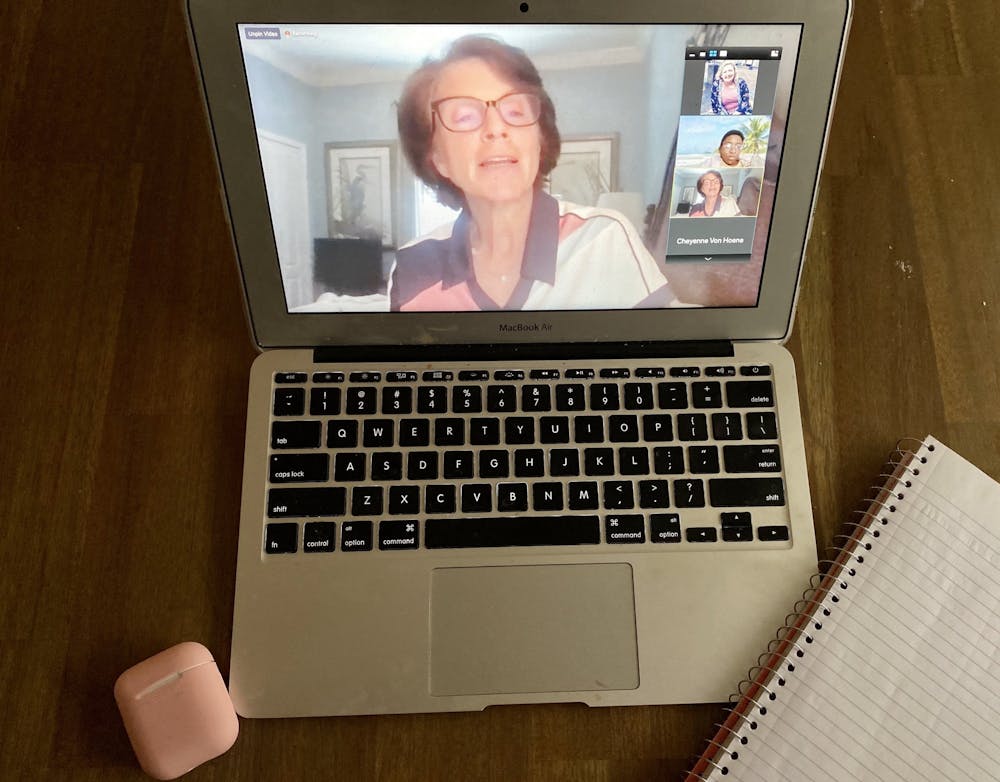Americans used to love technology in education.
Facebook, Twitter, Apple, Amazon — tech giants such as these were viewed as having a positive effect on the country in 2015 by 71% of Americans, according to Pew Research. The positivity was shared by the education sector. For example, the Los Angeles Unified School District attempted in 2014 to purchase 700,000 iPads for classroom use.
Privacy scandals such as Facebook’s Cambridge Analytica fiasco precipitated a drop in positive associations with tech companies. Still, 67% of Americans believe technology has improved their lives, according to an Ipsos poll last year. And now, in the midst of the COVID-19 pandemic and school cancellations across the country, we’ve been forced to move our education system online.
If we’re not careful, America could once again fall in love with tech-heavy learning.
But this would be a mistake. The coronavirus pandemic is illustrating that there should be limits to the use of technology in education.
The empirical evidence already suggests that more technology does not always equal better learning outcomes. A 2015 study from the Organization for Economic Cooperation and Development found that frequent use of computers at schools was associated with poorer learning outcomes.
This can be for a variety of reasons.
As noted by the Association for Supervision and Curriculum Development, a large body of research has shown that we learn better when using pen and paper. One such study from Ulm University showed that kindergarteners trained in handwriting outperformed peers who solely used a keyboard.
Screens also serve as a constant distraction. A 2019 survey from the University of Waterloo found almost half of college students are distracted by screens in the classroom — a worrisome statistic, given the precipitous increase of technology in the classroom.
Unfortunately, research is not always the driving force behind policy decisions in this nation, and education is no exception. But the COVID-19 pandemic serves as an educational experiment, pressing accelerate on the screen-ification of the American education system.
Given the recency of the pandemic, academic studies on this educational moment do not yet exist. But attitudes toward online learning are becoming increasingly clear. Students and parents are becoming more concerned about the drawbacks of this dramatic educational shift. A Gallup survey from late March found that 42% of parents were worried that their children’s education will be negatively impacted by COVID-19 and school closings.
As a senior finishing college, I feel these limitations first hand. I’ve never felt more disconnected from my classes and classmates. It’s not the fault of anyone involved — my professors hold lectures and office hours, I attend regularly and my fellow students and I engage in virtual presentations and discussions.
But I feel a clear difference in how I learn. I absorb less information when I’m not sitting in a class and taking notes or able to show a professor my work at office hours or have a face-to-face discussion with classmates.
The evidence and student experience shows that we cannot keep choosing technology and expecting the learning curve to keep going up.
To be clear, I am no luddite — I recognize that technology in the classroom has already created many benefits for students such as increases in motivation and reduced costs. Between virtual libraries which make academic research papers easier to software which can check my math, I’ve personally benefited from these trends.
But even though some technology has helped students, this does not mean more technology will always improve educational outcomes. And when education budgets are failing to recover from recessions and funding cuts, policy makers need to be more critical than ever about where our focus and dollars are going.
This pandemic provides an opportunity for us to think critically about what works — and doesn’t work — as COVID-19 accelerates the rise of virtual education.
Christian Sayers (he/him) is a senior studying mathematics and economics. He hopes to someday own a large rabbit.





